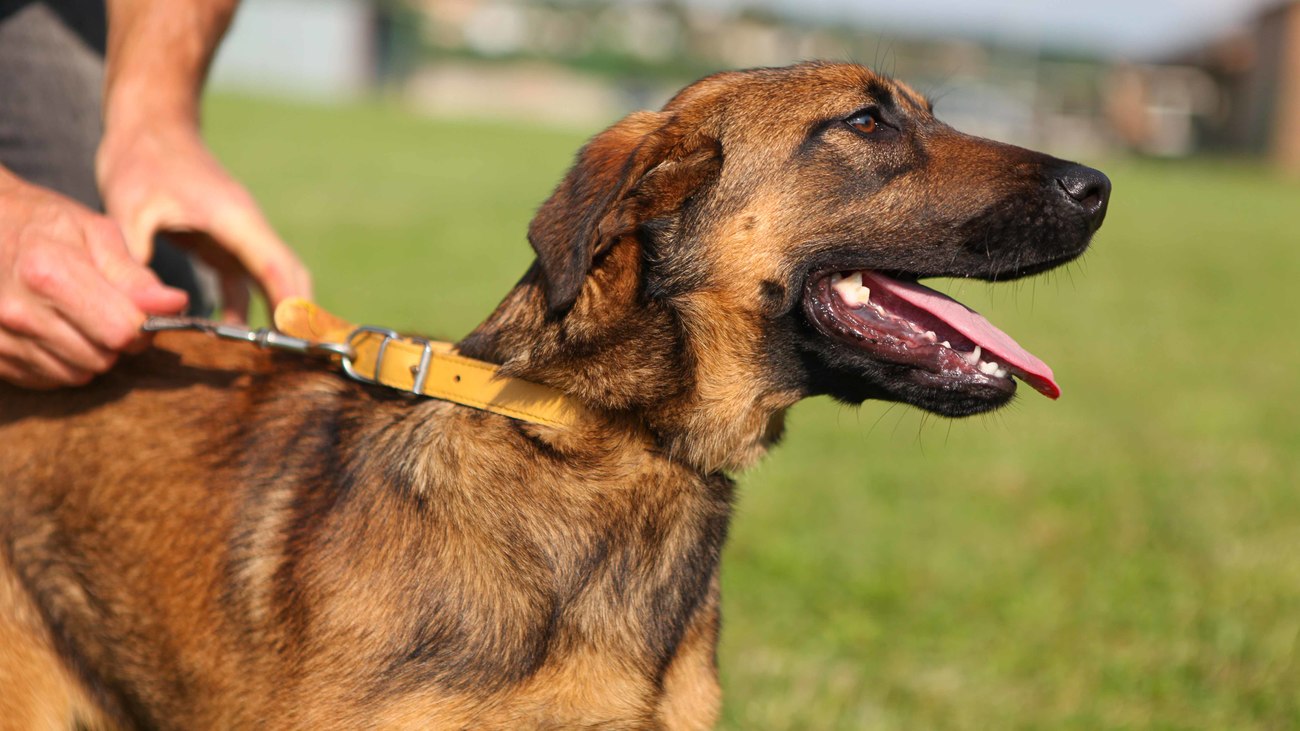Benjamin Wiacek
Senseo and Sonic: detection dogs on the frontlines of wildlife trafficking
Senseo and Sonic: detection dogs on the frontlines of wildlife trafficking

It is 7am; the mist is barely letting me see the wide plains of grass covered by the morning dew. I am in Neufchateau, in France’s northeast countryside for a very important assignment. I'm about to meet IFAW's latest recruits in the fight against wildlife trafficking! Senseo and Sonic, two crossbred Belgian Shepherds and Labradors, are 5-month-old siblings who are traveling to Benin to become the latest recruits for IFAW’s Detection Dogs project.
Fantastic olfactory skills
Like most people, I had the opportunity to see detection dogs before, mainly in airports and train stations, but I had no idea there were dogs able to detect more than just explosives and drugs. Thanks to their incomparable sense of smell—up to 10,000 times stronger than that of humans—dogs can also detect bank notes, cancer and most recently COVID-19 cases, along with animal parts and a wide range of living animal species, from whales to bedbugs.
The two pups are here in France receiving an introductory training that will enhance their motivation and playfulness, both crucial skills to become part of our detection dog team.
A well-rounded day of training and play
Nothing better to start the day than a nice walk in the coolness of the morning. A quick sanitary check-up to make sure eyes, ears and teeth are ok, a weekly passage on the scale and we’re on our way to the training centre.
At this age, Sonic and Senseo aren’t working on ivory or pangolin smells yet. The idea of this pre-training is to make sure they like to play and search for the ball, even in challenging environments. So they play, and they love it!
Hide a ball inside a room full of furniture and they find it. Launch the ball between a mountain of old plastic bottles and tires, and they dig in to bring it back. Each session only lasts for a few minutes: it may seem simple, but these exercises require immense amounts of concentration and energy, and the dogs’ welfare prime above all else!
The sun is now high in the sky and the temperature reaches 30 degrees. No more work for today—time for a splash in the near-by river. Sonic and Senseo swim after the ball and have a blast in the cool water.
The next day, we’re going to the main city’s train station so that the dogs can familiarise themselves with noisy and crowded places. The ability to focus on the play (eventually the work) in a challenging environment is as important as their detection skills.
A journey to stop wildlife trafficking
Sonic and Senseo will join the project team in Cotonou, Benin and the five dogs already there. As they grow older, they will learn to recognise and detect the smell of ivory and pangolin scales in increasingly difficult set-ups. They will then be paired with officers from the Waters and Forests department—a unique process that takes into consideration the handlers’ preference, our Project Manager’s opinion and of course how the dogs feel and interact with each handler. After six months of training as a team, they will be deployed in the port and airport in Cotonou.
Shortly, the group will also welcome the arrival of Rosco, a 10-month-old German Shepherd, and Oscar, a two-and-a-half-year-old Belgian Shepherd, who will also leave Neufchateau’s training centre for the Benin project.
It was an emotional moment to leave these dogs after only 48 hours, especially Senseo who I was particularly fond of. I’m happy to have had the opportunity to meet them and I know they’ll do great things in the fight to protect wildlife.
-Benjamin Wiacek, EU Communications Manager
Related content
Every problem has a solution, every solution needs support.
The problems we face are urgent, complicated and resistant to change. Real solutions demand creativity, hard work and involvement from people like you.